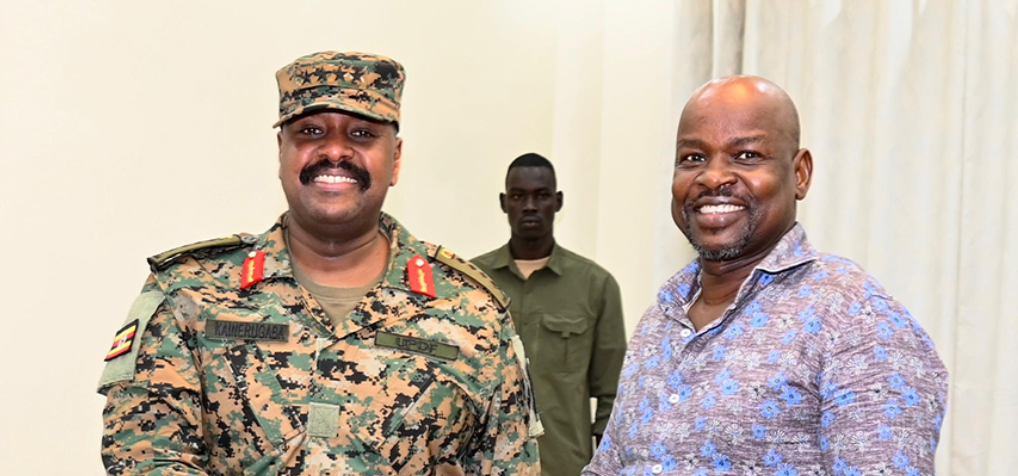Uganda’s top military official held closed-door talks with South Sudanese President Salva Kiir on Saturday, as the two nations navigate a fragile security alliance following recent deadly clashes along their shared border.
Gen. Muhoozi Kainerugaba, Uganda’s Chief of Defence Forces, arrived in Juba early Saturday and was received by South Sudan’s army chief, Gen. Dau Aturjong, before proceeding to the presidential palace.
The discussions, described by officials as focusing on “cooperation,” come weeks after a violent confrontation between Ugandan and South Sudanese forces left several soldiers dead in Kajo-Keji County.
The visit marks the second high-level Ugandan military delegation to Juba in a week, following a trip by Deputy Defence Chief Lt. Gen. Sam Okiding, who inspected Ugandan troops stationed near the capital.
After meeting Kiir, Kainerugaba held talks with Vice President for Economic Cluster Dr. Benjamin Bol Mel, where they discussed security cooperation between the two countries.
The Ugandan military chief later visited Bilnyang village, the tactical headquarters of Operation Milnzi Wa Kimya—Swahili for “Silent Guardian”—where Ugandan forces are deployed under a bilateral security arrangement. The operation, launched in March amid renewed tensions between Kiir and his rival, First Vice President Riek Machar, has been shrouded in secrecy and faces scrutiny over its scope and funding.
Last week, the Awan Chan youth group, from Kiir’s home area, claimed each Ugandan soldier deployed in South Sudan is paid $200 per day—an allegation neither government has confirmed.
Uganda has long been a key security partner for Juba, sending troops in 2013 to back Kiir during a brutal civil war against opposition leader Riek Machar. The conflict killed an estimated 400,000 people before a shaky peace deal was reached in 2018.
Despite public affirmations of cooperation, border tensions persist. The two nations agreed in 2022 to demarcate their border—a process stalled by reliance on colonial-era maps.




